8 Portraits of Razman Nasution Reveal Lolly's Discomfort in the Safe House: Mentions Mysterious Figure "Aunt"
Check out the portraits of Razman Nasution that reveal Lolly's condition while in the safe house.
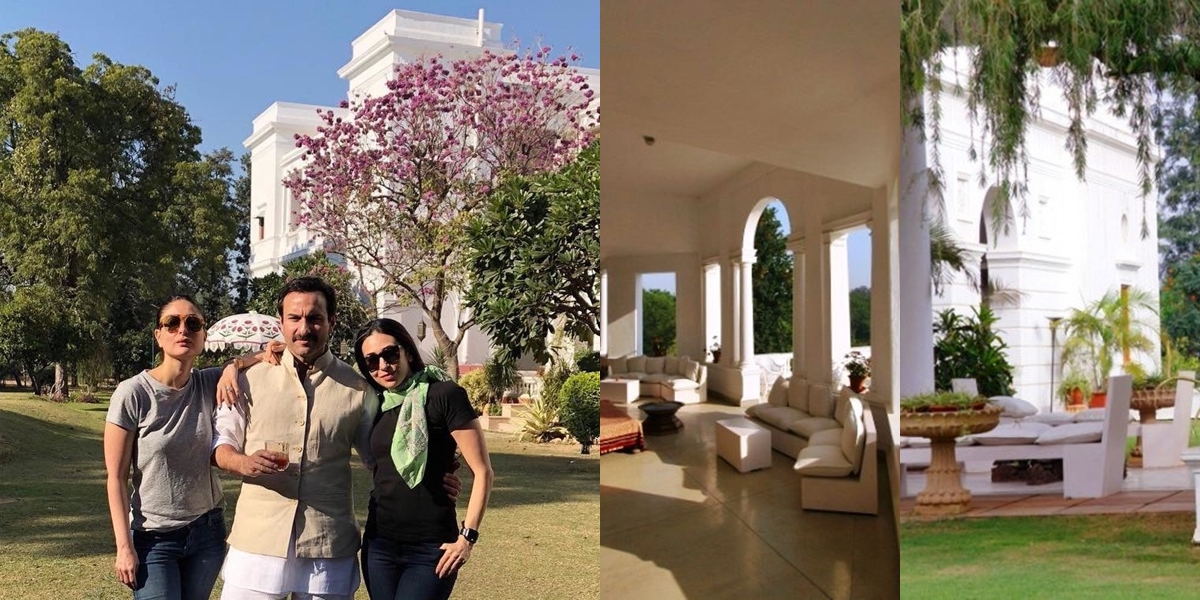
Kapanlagi.com - Pataudi Palace owned by Saif Ali Khan, which is threatened to be seized by the state, is currently under the spotlight in India. As is known, Saif is the current Nawab of the Pataudi State located in the Delhi region of India.
This state was established in 1804 by the East India Company, which was then in power in India. This small state consists of one city, Pataudi, which has 40 villages. Its government is the Pataudi family, with the main leader holding the title of Nawab or Young King.
The first Nawab of the Pataudi Kingdom was Faiz Talab Khan, a Muslim immigrant from the Barech tribe in Afghanistan. Faiz assisted the British East India Company in fighting against the Maratha Empire during the Second Anglo-Maratha War, and was then granted authority over the Pataudi State in 1804.
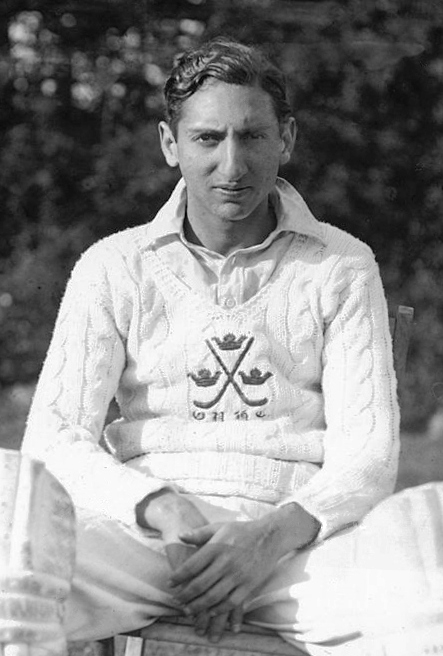
Iftikhar Ali Khan © wikipedia
The Pataudi Palace, which is currently in the spotlight, is the palace of the former rulers of Pataudi. Located in the Guguram district, Haryana, this palace was inherited by the last nawab, Iftikhar Ali Khan, to Mansoor Ali Khan.
The palace was completed around 1935, after nawab Iftikhar felt that his old house was not grand enough for his new wife, begum Bhopal. He then built the palace in the style of a large colonial house of the Imperial Delhi era, designed by Robert Tor Russell and Karl Malte von Heinz.
This building has 150 rooms, consisting of 7 dressing rooms, 7 bedrooms, 7 billiard rooms, complete with a painting room and a spacious family room. Additionally, there is also a magnificent dining room and a large courtyard full of trees.
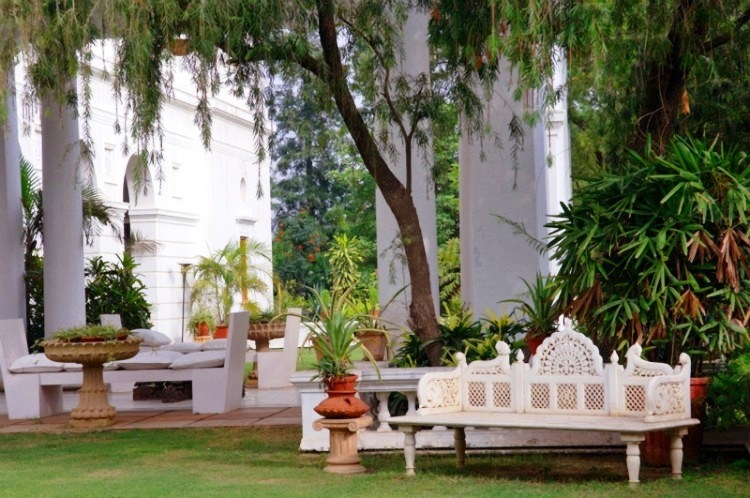
Pataudi Palace © architecturaldigest
Established in 1804, the state of Pataudi was first led by Faiz Talab Khan. He ruled the Pataudi region from 1804 to 1829.
After that, power was taken over by his son, Akbar Ali Khan, who ruled from 1829 to 1862. This was followed by the third nawab, Mohammad Ali Taqi Khan, who ruled from 1862 to 1867.
The fourth nawab was Mohammad Mukhtar Husain Khan, who ruled from 1867 to 1878. He was succeeded by the fifth nawab, Mohammad Mumtaz Husain Ali Khan, who ruled from 1878 to 1898.
The sixth nawab, Mohammad Muzaffar Ali Khan, ruled from 1898 to 1913. He was followed by the seventh nawab, Mohammad Ibrahim Ali Khan, who ruled from 1913 to 1917.
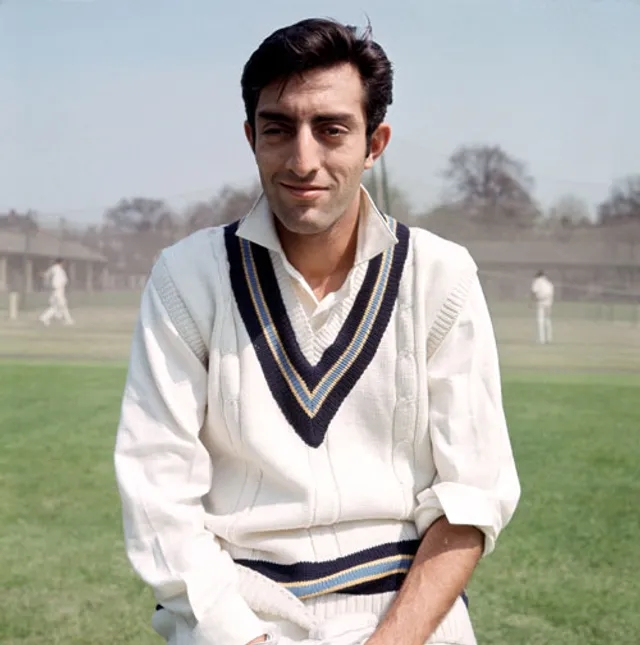
Mansoor Ali Khan © Wikipedia
The leadership of the Pataudi State was held by Mohammad Iftikhar Ali Khan from 1917 to 1948. This eighth nawab became the last official leader of the Pataudi region after joining India following independence.
After that, the title of nawab was held by Mansoor Ali Khan Pataudi from 1952 to 1971. Then in 1971, the title of nawab became merely a noble title for the family, without privileges from the Indian government, in accordance with the Pataudi family's agreement to join India after the declaration of independence in 1947 and then officially stating their joining in 1949.
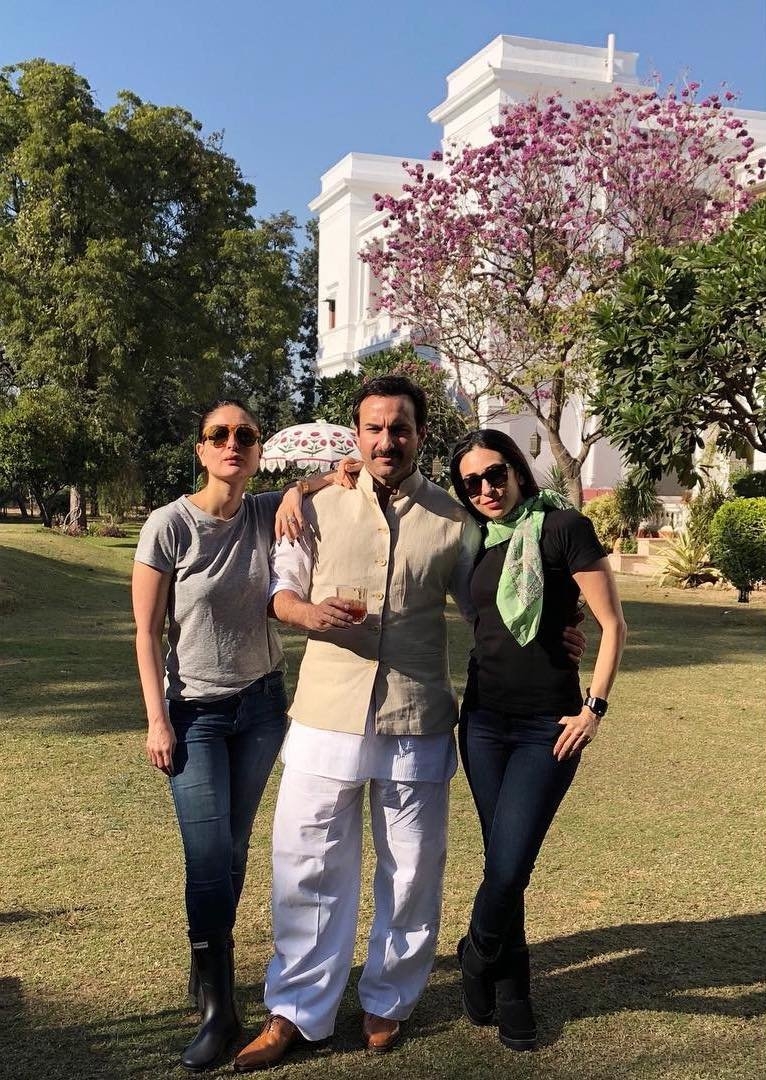
Saif Ali Khan at Pataudi Palace © instargram/kareenakapoorkhan
Unofficially, Saif Ali Khan is the tenth nawab of the Pataudi State. As the first son of Mansoor Ali Khan, Saif is entitled to the nawab title from his family. However, he does not have power over the Pataudi region, although his family is still very respected there.
When Saif returns to Pataudi, he is usually warmly welcomed by the locals around his palace. He still often visits to attend traditional events in the Pataudi village area and is treated like a young king.
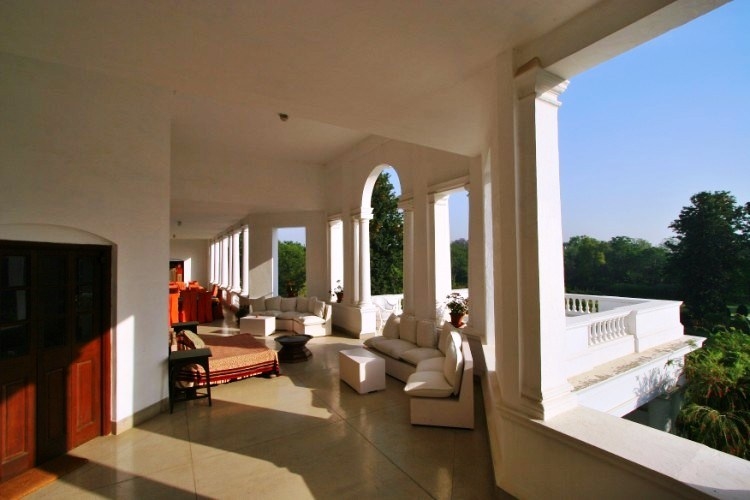
Pataudi Palace © architecturaldigest
Pataudi Palace was once a hotel for 17 years. Mansoor Ali Khan collaborated with Neemrana Hotels' owners, Francis Wacziarg and Aman Nath, to manage this building as an accommodation and opened it to the public. Their collaboration lasted from 2005 to 2014.
Then in 2014, Saif Ali Khan took over Pataudi Palace and decided not to continue the partnership with the hotel management. He returned Pataudi Palace as a home, which he then used as his residence during the winter.
He did not inherit this palace, but bought it for a fantastic price. The hotel management that was renting it demanded a very high price from Saif if he wanted to settle their contract. The total price paid by Saif was Rs800 crore or about Rp1.5 trillion. That is why Saif is known as a nawab without an inheritance.
From his hard work as an actor, Saif repurchased Pataudi Palace and made significant renovations to the interior of Pataudi Palace with designer Darshini Shah. Saif wanted to make this family palace a comfortable home, not a luxury hotel like its previous function.
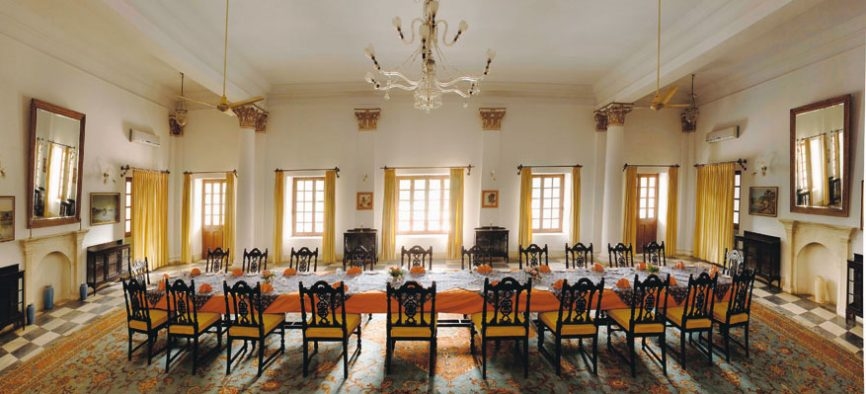
Pataudi Palace © architecturaldigest
Pataudi Palace is now contested between the Indian government and Saif Ali Khan. Through the Enemy Property Act, the Bhopal government intends to seize the palace valued at Rp28 trillion.
The basis for the Bhopal government's claim is the fact that Saif's great-aunt Abida Sultan decided to migrate to Pakistan in 1950. Abida was the daughter of the Nawab of Bhopal, Hamidullah Khan, and the sister of Saif's grandmother, Sajida Sultan. Sajida later married Iftikhar Ali Khan and had a son named Mansoor Khan, who is none other than Saif Ali Khan's father.
In terms of ownership, Abida is actually not linked to Pataudi Palace, which is owned by her brother's family. However, the Bhopal government is using Abida's decision to immigrate to Pakistan to classify Pataudi Palace as enemy property that can be seized.
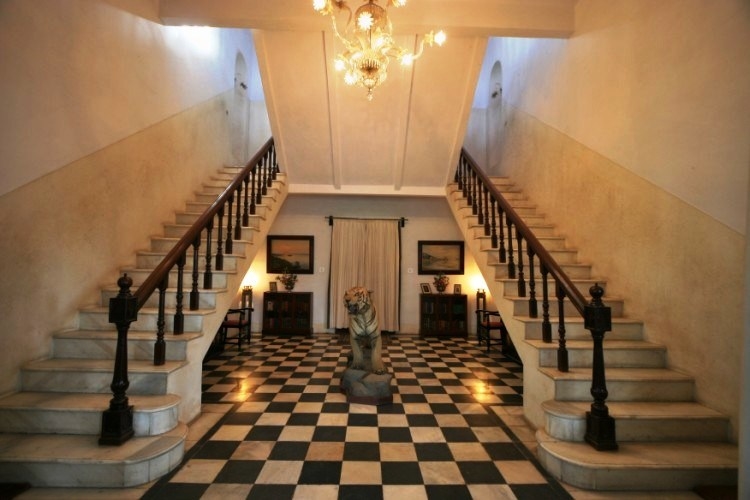
Pataudi Palace © architecturaldigest
The law regarding enemy property refers to assets, both movable and immovable, that have been left in India by individuals who migrated to countries designated as "enemy countries" during times of conflict.
After the wars between India and Pakistan in 1965 and 1971, and the Sino-Indian War in 1962, the Indian government took control of properties and businesses owned by those who adopted citizenship of Pakistan or China.
Saif Ali Khan opposes this decision and he is still fighting to retain his property through the courts. To this day, the case regarding the ownership of Pataudi Palace is still ongoing.
Stay updated with Saif Ali Khan only on KapanLagi.com, if not now, when else?
(kpl/phi)
Cobain For You Page (FYP) Yang kamu suka ada di sini,
lihat isinya
Check out the portraits of Razman Nasution that reveal Lolly's condition while in the safe house.
Arsy is now 10 years old. She has become the eldest sister to her brother Arsya and also an aunt to Ameena & Azura.
Iqbaal Ramadhan reveals what the depth of his role is like in the film Perayaan Mati Rasa.
They are strong business figures who become unstoppable when they embrace each other.
Check out the photos of Razman Nasution mentioning that Lolly once wanted to end her life.
Queen Sofya and Cornelio Sunny are becoming more open about their romantic relationship in public. Read more about it below!
Hanggini vacationed in Japan. Check out the complete photos below!
Fico is known to have sold his house to pay off his debts. Check out the complete story below!
Mpok Atiek, a senior Indonesian comedian and actress, recently expressed her gratitude after being declared completely healed from the intestinal tumor she suffered from.
Asri Welas and Galiech's emotions were mixed during the divorce as the ruling date was close to their wedding anniversary. Read the full news.
Exactly one year after becoming a stepfather to Noah Sinclair, Tiko Aryawardhana shows an increasingly close bond with the son of the late Ashraf Sinclair. Although Noah still calls him 'Uncle', their relationship appears warm.
The latest news on Aji Yusman, the actor from IS THIS WHAT LOVE FEELS LIKE, remains in the public spotlight. Recently, this actor born in 1988 has been known to become a toy seller.